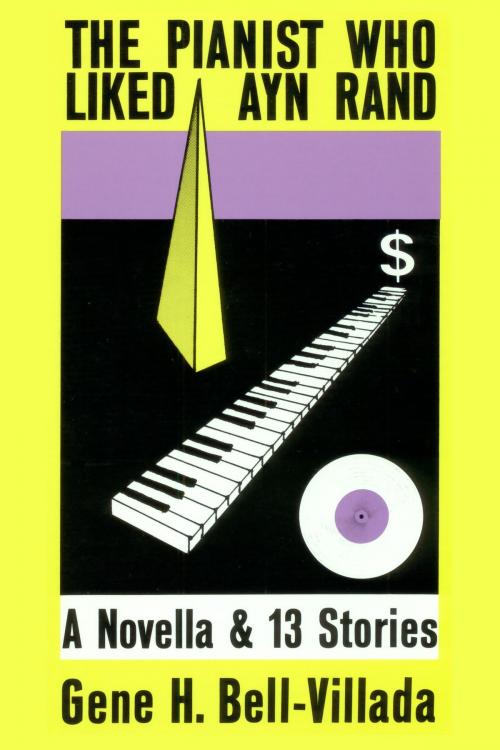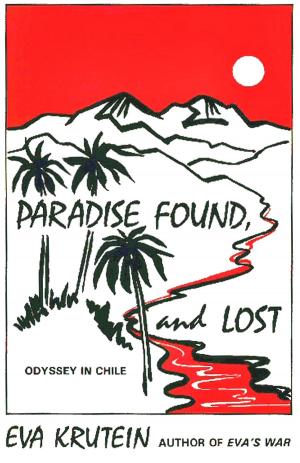| Author: | Gene Bell-Villada | ISBN: | 9780938513551 |
| Publisher: | Amador Publishers, LLC | Publication: | November 1, 2015 |
| Imprint: | Smashwords Edition | Language: | English |
| Author: | Gene Bell-Villada |
| ISBN: | 9780938513551 |
| Publisher: | Amador Publishers, LLC |
| Publication: | November 1, 2015 |
| Imprint: | Smashwords Edition |
| Language: | English |
Childhood overseas. Trying to find oneself as an artist. Growing up Latino. Music, musicians, and an eccentric musicologist. A statue, a cigarette, a moustache. A nightmarish piano recital. Abortive romances. Loneliness, silence. The problem of fascism. These are among the subjects evoked in this collection of fourteen pieces, which alternate regularly between "straight," realistic stories and more fantastical, "experimental" kinds of narratives. Emotions range from wistful to satirical. Atmospheres vary from wholesome to sinister. Settings include San Juan, Philadelphia,
Cambridge, Manhattan, Tucson, Berkeley CA and an imaginary isle of silence. In the title piece, the Chicano jazz pianist falls in love with a sorority girl who believes in Ayn Rand. To get in her good graces, he reads all of Rand, and ends up converted - with strange consequences.
Is THE PIANIST WHO LIKED AYN RAND minimalist art, or a wicked satire on that material? The stories seem to be about so little, at first, but then the author pulls the reader into very serious considerations of Fascism, assorted kinds of racism, oppression and obsession, including Objectivist Philosophy, existential loneliness and such everyday banalities as campus "abortive romances."
One wonders what those readers who want everything imaginable to happen in a bath of extra adrenaline will make of the stories in THE PIANIST WHO LIKED AYN RAND. But it happens that these stories are about something very important. They're about how we can become content, or make ourselves think we are content, with very little. No wonder the romances are "abortive;" Ayn Rand Memorial Up-front Selfishness can hardly be the basis for pleasurable and lasting human interaction. And the satire sweeps up those thoughtful people, basically of good will, who are completely preoccupied by things that matter very little, while the "public thing" goes down the drain.
From Publishers Weekly:
The first half of Bell-Villada's wry, erudite collection (billed as a satire on "the minimalist school of art") describes the misadventures of Dickie Dickerson, an American growing up in Puerto Rico who goes on to attend universities in America. Dickie's experiences?losing an older friend because Dickie dares to correct him in front of one of his romantic prospects, winning a record in a radio music contest, then finding that it will not fit on his phonograph?are not earth-shattering, but Bell-Villada (Borges and His Fiction) makes them glow with his attention to personal detail. After this patchwork portrait, the latter half of the book is a more engaging mix of fiction and satirical essays. When Bell-Villada pushes his tongue too far into his cheek, his jokes fall flat (a New York Review-style article titled "Hitler Reconsidered"; a pseudo-Borgesian philological article written on an island whose residents have lost all audible speech). Other pieces are more successful. The poignant title story consists of letters from a youth who emulates Ayn Rand's heroes until (surprise, surprise) his selfishness backfires. What such stories lack in subtlety they make up for in verve and escapist charm.
Childhood overseas. Trying to find oneself as an artist. Growing up Latino. Music, musicians, and an eccentric musicologist. A statue, a cigarette, a moustache. A nightmarish piano recital. Abortive romances. Loneliness, silence. The problem of fascism. These are among the subjects evoked in this collection of fourteen pieces, which alternate regularly between "straight," realistic stories and more fantastical, "experimental" kinds of narratives. Emotions range from wistful to satirical. Atmospheres vary from wholesome to sinister. Settings include San Juan, Philadelphia,
Cambridge, Manhattan, Tucson, Berkeley CA and an imaginary isle of silence. In the title piece, the Chicano jazz pianist falls in love with a sorority girl who believes in Ayn Rand. To get in her good graces, he reads all of Rand, and ends up converted - with strange consequences.
Is THE PIANIST WHO LIKED AYN RAND minimalist art, or a wicked satire on that material? The stories seem to be about so little, at first, but then the author pulls the reader into very serious considerations of Fascism, assorted kinds of racism, oppression and obsession, including Objectivist Philosophy, existential loneliness and such everyday banalities as campus "abortive romances."
One wonders what those readers who want everything imaginable to happen in a bath of extra adrenaline will make of the stories in THE PIANIST WHO LIKED AYN RAND. But it happens that these stories are about something very important. They're about how we can become content, or make ourselves think we are content, with very little. No wonder the romances are "abortive;" Ayn Rand Memorial Up-front Selfishness can hardly be the basis for pleasurable and lasting human interaction. And the satire sweeps up those thoughtful people, basically of good will, who are completely preoccupied by things that matter very little, while the "public thing" goes down the drain.
From Publishers Weekly:
The first half of Bell-Villada's wry, erudite collection (billed as a satire on "the minimalist school of art") describes the misadventures of Dickie Dickerson, an American growing up in Puerto Rico who goes on to attend universities in America. Dickie's experiences?losing an older friend because Dickie dares to correct him in front of one of his romantic prospects, winning a record in a radio music contest, then finding that it will not fit on his phonograph?are not earth-shattering, but Bell-Villada (Borges and His Fiction) makes them glow with his attention to personal detail. After this patchwork portrait, the latter half of the book is a more engaging mix of fiction and satirical essays. When Bell-Villada pushes his tongue too far into his cheek, his jokes fall flat (a New York Review-style article titled "Hitler Reconsidered"; a pseudo-Borgesian philological article written on an island whose residents have lost all audible speech). Other pieces are more successful. The poignant title story consists of letters from a youth who emulates Ayn Rand's heroes until (surprise, surprise) his selfishness backfires. What such stories lack in subtlety they make up for in verve and escapist charm.















